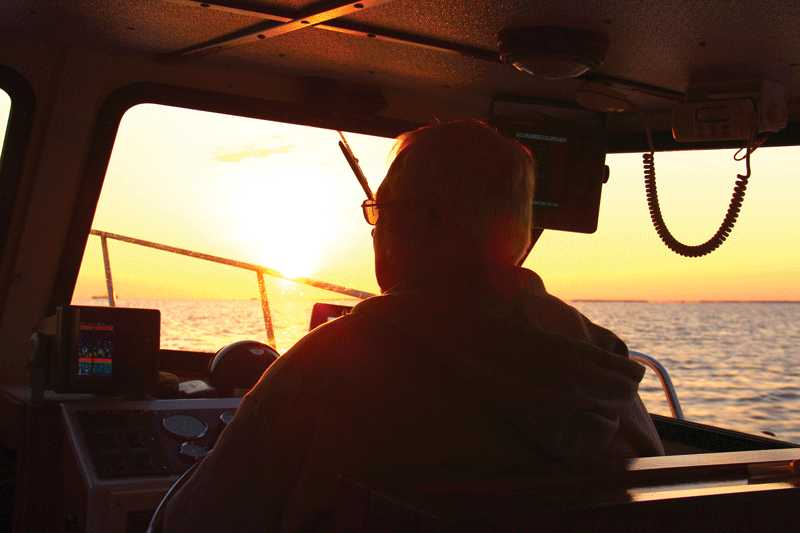Something that all of us working and adventuring on the water are aware of is the vast difference between the U.S. Coast Guard saying you are certified, and true seamen—capable and experienced. There is more to being a good captain than boat handling skills. Someone who can effortlessly maneuver a boat may be impressive, but if they cannot bring a crew together, they are not a captain. Likewise, a great leader that cannot take a boat away from an open dock is of little use on any vessel, recreational or otherwise.

So what makes a good captain? After five years on the water and voyages ranging from Africa to South America, both as crew and more recently as skipper, I have identified these following attributes for a good captain:
1. Confidence
Absolutely number one. As one old tugboat skipper once told me, “Just make sure you sound confident on the radio. They’ll hear it if you aren’t.” No one follows a captain going forward with trepidation. Once a decision is made, it should be announced with confidence and the crew will follow and feel safer.
One winter during a massive storm in the Gulf of St. Lawrence, we were in trouble. A 40-foot wave had just broken on our stern and smashed through a stern portlight, flooding the galley. Our captain looked at me and said with a nervous voice, “Don’t worry, no one is going to die today.” Needless to say, we were all far more concerned after that. Stay calm and confident no matter what the circumstances.
2. Seamanship
While I am a frequent practitioner of the motto ‘Fake it ‘til you make it,’ and I own a shirt emblazoned with the saying ‘Often wrong, always confident,’ you have to know your trade. Green crew will look to you as a teacher, and experienced crew will judge your every move.
The saltiest thing I ever witnessed was when an old captain rushed to check the sounder after seeing a school of reef fish. Based solely on the species, he had concluded that we might be nearing an uncharted shoal. We weren’t, but the ability to identify possible dangers based solely on a species of fish can only come with experience and attention. Practice, practice, practice.
3. Humility
Be confident, but quietly so, and let your actions speak for themselves. On a Canadian job one time, the customers took us to dinner. As I (the young deckhand) was regaling them with tales of our trip, the mate sat quietly at the end of the table smiling. One of the clients asked what his position was. “I’m the mate,” he answered. “I figured as much,” the client said. “It’s always the quiet one that’s in charge.” I shut up.
4. Responsibility
As master of a vessel, it all comes down on you, and the quickest way to lose the respect of the crew is to try to blame them when things go wrong. Perhaps a docking attempt went wrong; maybe a sail was snagged and torn. At the end of the day you are responsible for the entire operation of the vessel, and that includes training your crew. Mistakes are part of that training, and if they are made innocently, take the crew aside and show them what went wrong so that the next time the crew tries the job you can be proud that you are responsible for them.
5. Calm
Both in personal demeanor and your vessel handling. When everything is going wrong, the captain that stands calm among the chaos stands above the rest, and his/her crew will follow. Panic begets panic. No matter how bad the situation, the only two times you should yell are when you’re yelling praise, or someone is about to die. Extend your calmness to your vessel handling—the slower you go the smaller the dent.
While there are many more characteristics that make a good captain, if you can learn to exhibit what I have listed here, you will have crew turning up to go boating again and again. Some of us have done it, and some of us are working hard to gain the title, but no matter what, the requirements for a captain remain the same. Whether you are cruising up to Annapolis for crab cakes or casting off to tow a ship 2000 miles, the day you get the reins handed to you take them firmly and set sail!
By Cody Howdeshell